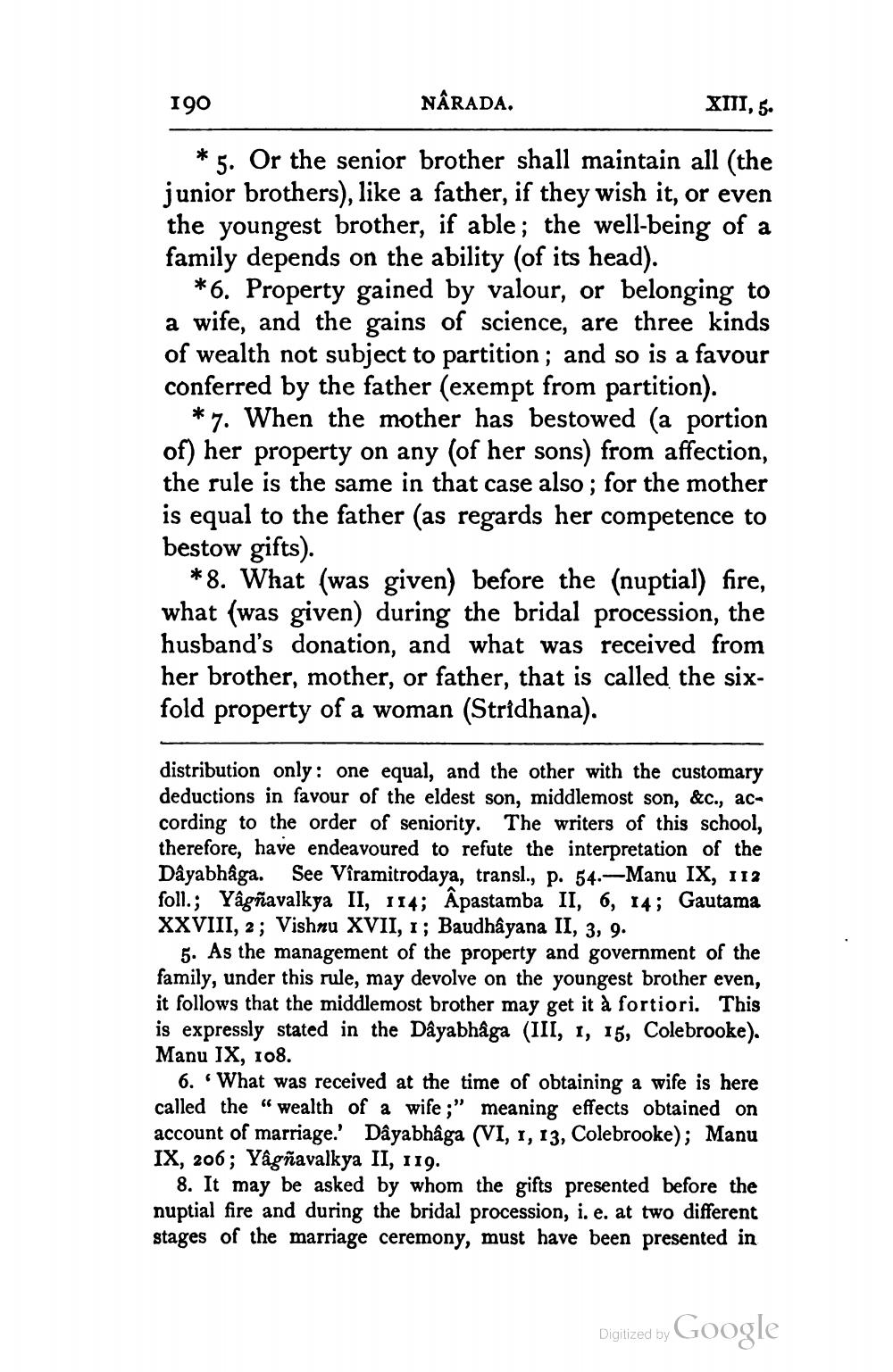________________
190
NÂRADA.
XIII, 5.
* 5. Or the senior brother shall maintain all (the junior brothers), like a father, if they wish it, or even the youngest brother, if able; the well-being of a family depends on the ability (of its head).
*6. Property gained by valour, or belonging to a wife, and the gains of science, are three kinds of wealth not subject to partition; and so is a favour conferred by the father (exempt from partition).
*7. When the mother has bestowed (a portion of) her property on any of her sons) from affection, the rule is the same in that case also; for the mother is equal to the father (as regards her competence to bestow gifts).
*8. What (was given before the (nuptial) fire, what (was given) during the bridal procession, the husband's donation, and what was received from her brother, mother, or father, that is called the sixfold property of a woman (Stridhana).
distribution only: one equal, and the other with the customary deductions in favour of the eldest son, middlemost son, &c., according to the order of seniority. The writers of this school, therefore, have endeavoured to refute the interpretation of the Dâyabhaga. See Vîramitrodaya, transl., p. 54.-Manu IX, 112 foll.; Yâgñavalkya II, 114; Apastamba II, 6, 14; Gautama XXVIII, 2; Vishnu XVII, 1; Baudhayana II, 3, 9.
5. As the management of the property and government of the family, under this rule, may devolve on the youngest brother even, it follows that the middlemost brother may get it à fortiori. This is expressly stated in the Dayabhaga (III, 1, 15, Colebrooke). Manu IX, 108.
6. What was received at the time of obtaining a wife is here called the “ wealth of a wife;" meaning effects obtained on account of marriage.' Dayabhaga (VI, 1, 13, Colebrooke); Manu IX, 206; Yågñavalkya II, 119.
8. It may be asked by whom the gifts presented before the nuptial fire and during the bridal procession, i.e. at two different stages of the marriage ceremony, must have been presented in
Digitized by Google




